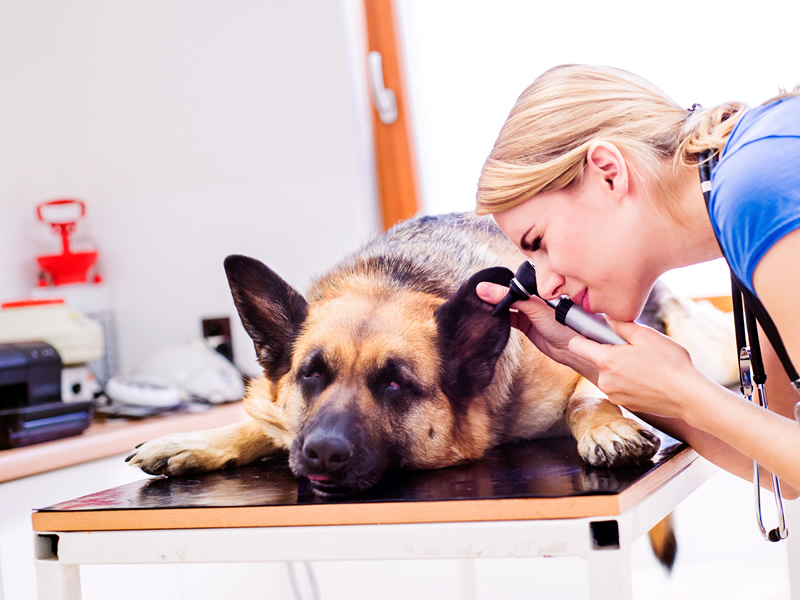Pet Medical Care

We provide a full range of pet medical care and surgical services at Larchmont Animal Hospital
Pet owners know something other people don’t: house pets are more like people than other animals in the animal kingdom. They suffer from many similar maladies, including wounds, gastrointestinal issues, eye infections and allergies.
The big difference is, pets can’t take charge of their own medical care like people can. They rely on people to take care of them. And conscientious pet owners, in turn, rely on the veterinarians at Larchmont Animal Hospital.
Annual pet wellness visits
Just as it’s important for people to be proactive about their health, it’s important for pet owners to be proactive about their pet’s health. The best way to do this is with annual wellness visits, which “us humans” call checkups.
Our examination room is equipped with many different diagnostic tools that allow us to assess your pet’s health. With our computerized management system, we maintain an electronic medical record for your pet, enabling quick recall and allowing us to access your pet’s medical history quickly at all stations throughout the hospital.
At your pet’s annual checkup, we pay special attention to vaccines, which are vital to staying healthy. We also assess dental health and consider lifestyle and risk factors so that we can make any necessary adjustments.
Pet X-rays
People are prone to trips and falls and broken bones. And you could say that animals, who walk on four legs instead of two, have twice the opportunity to “break a leg.” When that happens, the veterinarians at Larchmont Animal Hospital are ready with our state-of-the-art digital radiology system. This means that:
- We reduce your pet’s exposure to radiation.
- We take X-rays significantly faster and more accurately than with film X-rays.
- Our doctors make speedier diagnoses and treatment decisions.
- We cut the amount of time your pet may spend in the hospital.
Pet surgical procedures
Surgery can be stressful and worrisome so you’ll appreciate knowing we have a modern surgical suite with extensive monitoring equipment. The team at Larchmont Animal Hospital brings a unique combination of compassion and expertise to a wide range of surgical procedures, including those involving:
- Gastrointestinal issues
- Removals of cysts and tumors
- Standard spaying and neutering
- Urinary and bladder procedures
- Wounds
Pet emergency services
When people think of hospitals – for people or animals – they often think of emergencies. After all, this is where doctors are equipped to treat the accidents, injuries and – yes – freak accidents that befall people and animals.
Whether the incidents turn out to be minor or life-threatening, the veterinarians will ensure speedy care. Please call us during office hours so we may triage the severity of your pet’s malady. If you realize your pet is critically ill after office hours, call Cornell Veterinary Specialist at (203) 518-6853 immediately.
Internal care for your pet
Despite your best and attentive efforts, your pet will become sick. It’s as inevitable for pets as it is for people. The veterinarians at Larchmont Animal Hospital diagnose and treat a full range of straightforward and complex internal problems, including issues related to the:
- Endocrine system
- Heart
- Immune system
- Kidneys
- Respiratory system
- Orthopedic
Pet eye care
Pets suffer from many of the same eye conditions that people do, including dry eye, “cherry eye,” corneal ulcers, lacerations and even glaucoma. This disease can spread rapidly and lead to vision loss and even blindness, so it’s vital to be alert to the warning signs, which include:
- Bulging
- Cloudiness
- Redness
- Sensitivity to light
- Tearing or discharge
Pet allergy and dermatology relief
You may be susceptible to pollen, dust and other contaminants, though it’s unlikely that fleas try to get under your skin. These irritants can trigger allergic reactions or dermatological conditions in your pet, so it’s crucial that they be treated as soon as you notice your pet:
- Chewing, scratching or biting
- Developing thicker skin in sore regions
- Losing hair
- Shaking, often in abrupt movements
